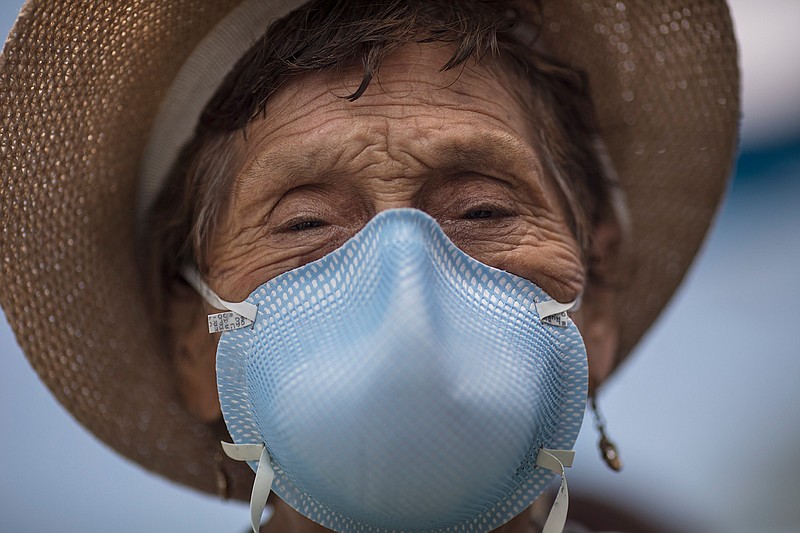Senior adults have been hardest hit by COVID-19. The death of a Matagorda, Texas, man in his late 90s has been one of the more recent fatalities.
Mortality with COVID-19, which is caused by the novel coronavirus, is linked to the strength of a person's respiratory system, according to the CDC. Seniors are particularly vulnerable to respiratory conditions. Adding to the danger facing seniors, is the contagious nature of the virus and the threat of it spreading in a confined population such as in a nursing home or senior living community.
After President Donald Trump declared a national emergency amid the global pandemic, federal officials also stopped all nursing home visits in an effort to keep residents safe.
Many local nursing homes and assisted living centers were offering Skype for family members to visit with their loved ones.
At Pleasant Manor Nursing and Rehab, residents were photographed holding up positive messages, such as "Don't worry about me. I am fine," for their loved ones to read.
Doctors agree that it is smart to take precautions, particularly where the elderly are concerned.
"I think it's our nature to want to see our loved ones, but it's important that anyone with any signs of illness to not expose their elderly relatives," said Dr. Joel Tumlinson, a physician in the Arkansas Department of Health's outbreak response section.
Older people and people with underlying health conditions appear to be about twice as likely to develop serious outcomes versus otherwise younger, healthier people, according to the CDC.
Older adults experience a gradual deterioration of their immune system, making it harder for their body to fight off diseases and infection. Many are also more likely to have underlying conditions that hinder the body's ability to cope and recover from illness. People with health conditions like heart disease, lung disease and diabetes need to be especially careful to avoid exposure to the novel coronavirus.
"Use common sense, stay aware of places that are affected and wash your hands," Tumlinson said. "There has been more awareness in recent years of using caution around newborns instead of everybody just passing the baby around. This similar thinking should also apply to elderly. It's very important to not visit if you are sick."
You really can't be too cautious when it comes to protecting the elderly, said Dr. Matt Young, director of Texarkana Emergency Center.
"Part of the problem in nursing homes is the close proximity everyone has to each other. And, of course, the majority of the residents already have chronic medical problems and that makes them more susceptible to disease. It is also harder for the elderly to fight off an illness," Young said.
The best way to prevent illness, according to the CDC, is to avoid being exposed to the virus.
People who are vulnerable, especially senior adults, are being advised to stay home until further notice. Anyone who must go out should not congregate in groups of 10 or more. Also:
Avoid close contact with people who are sick
Avoid touching your eyes, nose and mouth
Clean and disinfect frequently touched objects and surfaces using a regular household cleaning spray or wipe.
The CDC does not recommend that people who are well wear a face mask to protect themselves from respiratory diseases, including COVID-19.

